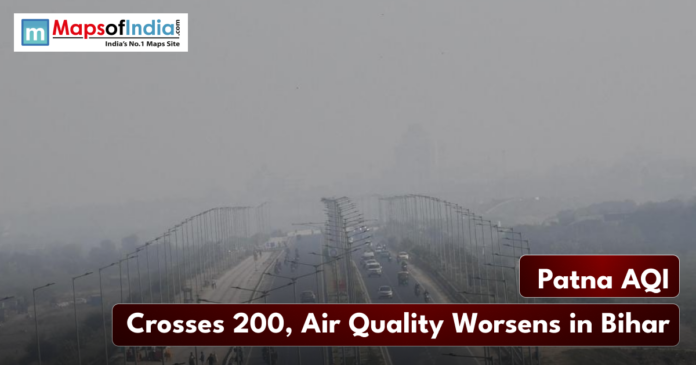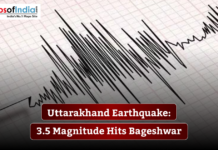Due to the latest monitoring data, Bihar is under the control of severe air pollution, with 15 big cities of the state reporting a poor to very poor air quality level. Hajipur is the most polluted city, and the Air Quality Index (AQI) reached the severe index, whereas Patna, the state capital, has also reached above 200, which is regarded as poor. The situation has brought serious issues to the health and management of the environment in the face of winter.
According to environmental authorities, the rise in the level of pollution is also significantly caused by the growing concentration of the levels of particulate matter (PM2.5 and PM10) in the atmosphere. The AQI readings in Hajipur have reached heights of 400 at some of the monitoring stations, which is deemed dangerous to the entire population group. The causes of the deteriorating situation are said to be factors like dust from construction sites, motor-related emissions, industrial processes, waste combustion, and stagnant winter air.
More pollutants have also been experienced in Patna, which has continuously ranked among the worst-polluted cities in India during winter. Having reached the 200 score, the city has already taken the range of air quality to a poor level. The experts caution that this may only worsen in the next few weeks as temperatures drop and the winds are calm, hence trapping the pollutants nearer to the ground, hence a limited dispersal.
The cities which have alarming amounts of pollution are also Muzaffarpur, Gaya, Ara, Bhagalpur, Darbhanga, Siwan and Rajgir. These places have increasingly been contaminated over the years, especially in the winter season. According to environmentalists, the poorest implementation of construction rules, road dust and density of vehicles are some of the key contributors.
The Bihar State Pollution Control Board (BSPCB) has been taking notice of the situation and has given directions to the district-level authorities to increase the practice of air pollution control. Authorities have been called upon to provide tighter management of dust at construction sites, spraying water on big roads, avoiding open burning of garbage, and patrolling more vigilantly on pollution points. In the next few days, special teams would be involved in carrying out unexpected checks to determine conformity.
Medical professionals have recommended that people, particularly the elderly, children and those with breathing problems, should not be exposed to outdoor air early in the mornings and late evenings. It is also likely that the worsening air quality will not be a thing that will fade away until more stringent and long-term pollution control measures are enforced at the state level.










